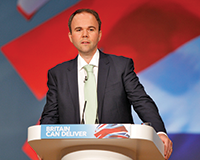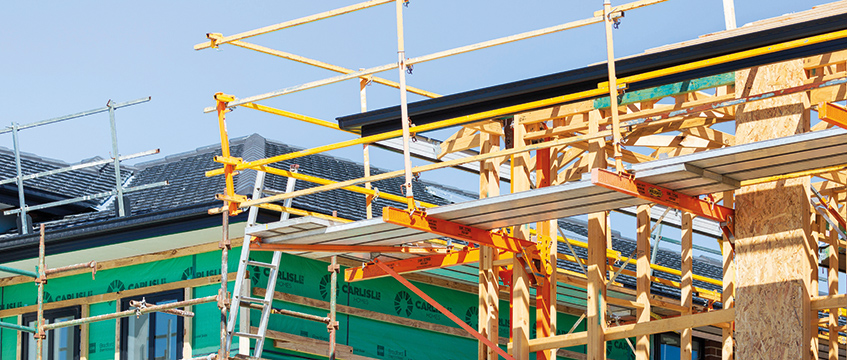Housing minister Gavin Barwell has pledged a “whole range of interventions” from government to encourage housebuilding in a housing white paper to be released this autumn.
The starting point would be how much land government released into the system, he said at the Conservative Party conference this week.
A £2bn “accelerated construction” scheme has been launched, with the aim of releasing publicly owned brownfield land to developers.
Signalling a new era of housing policy supporting supply rather than demand, Barwell said he was looking at solving the problems of a lack of SME housebuilders, custom- and self‑build, and institutional investment into PRS.
The housing white paper is likely to be released at the same time as the Autumn Statement on 23 November.
“I want to see more homes in the PRS, more shared ownership, more sub-market rent homes,” Barwell said. “Because the need that exists is across all tenures. So, we don’t want to get in the business of picking between different tenures. We want more of everything.”
Measures to promote off-site construction will also be included in the white paper. “If you look elsewhere around the world, there is plenty of potential for more innovation in how we build homes, which could reduce costs, speed up delivery and also potentially make homes cheaper for people when they are moving into them in terms of running costs,” Barwell said.
Starter homes regulations are likely to be released at the same time as the white paper, he hinted, but declined to say whether build-to-rent would be exempt from the regulations.
Barwell answers Estates Gazette’s questions on Khan’s foreign ownership probe and the need for allies
EG: Last week mayor of London Sadiq Khan launched an investigation into foreign ownership. Do you seen foreign investment into housing as a help or a hindrance to solving the housing crisis?
GB: I think it’s a help, actually, because often schemes wouldn’t get off the ground without it. Where there is an issue is if people are buying homes, and then they are either not living in them or renting them out – and they are just sitting vacant. But I think there’s a real problem with what the mayor is looking at there. Because what he has rightly been saying… ever since the referendum, he has been stressing that London is open for business and is a global city. And you can’t say that and then say, “but if anybody who wants to come and do business here wants a home here, that’s not allowed”. So you’ve got to be consistent. If you believe in London being a global city, you have to accept that you’re going to get foreign investment into our housing stock. But it is legitimate, I think, to look at homes that are just sitting empty and not being used at all.
EG: You said you are a man who is in need of allies at the moment. How would you like to work with the private sector?
GB: I want to work with people across the industry. Whether it’s private sector or whether it’s housing association sector, local councils, planning officers. This is a huge national challenge that we have. If you look back at all of my predecessors for a long period of time, we have not been building enough homes so it’s not a simple thing to solve and I’m going to need to work with the widest possible range of people to get the outcome that we want.
 Working for everyone?
Working for everyone?
Louisa Clarence-Smith, reporter at Estates Gazette
David Cardale is a committed Conservative Party member. He and his wife have recently built one of the nicest homes in their district. “We joke that we are Mr and Mrs Smug,” he says. “So I wanted to help other people build their own homes.”
He could be Theresa May’s ideal party member. For this has been the conference where every policy has been delivered through the filter of one overriding message: how to build “a country that works for everyone”.
Cardale handed over a flyer claiming government could “solve the housing crisis and any Brexit recession” by allowing councils to auction valuable planning permissions. His argument may be questionable, but he certainly struck the right party note when we met in a queue on Sunday.
Communities secretary Sajid Javid elevated the delivery of more homes to a “moral duty” which “falls on all of us.”
What does this tonal change mean for the industry? As well as a clear shift away from a dogged commitment to home ownership and starter homes, a new tough line towards both councils and developers has emerged. “The big developers must release their stranglehold on supply,” Javid said.
Addressing local authorities, he warned MPs and councillors to “be prepared to make difficult calls” on planning applications, “even if they are unpopular.”
The 2016 conference might have been light on hard policy. But it was heavy on sentiment. As one council adviser said, the property industry should take away one thing from this: when pitching to government, just make sure you make it clear how you are creating something that “works for everyone”.
See also: Tories change their tune
• To send feedback, e-mail louisa.clarence-smith@estatesgazette.com or tweet @LouisaClarence or @estatesgazette











